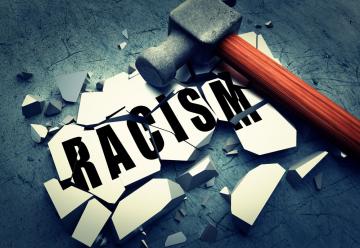Attacks against refugees, asylum seekers and migrants are unacceptable, say heads of European human rights institutions

With the drownings in the Mediterranean persisting as refugees, asylum seekers and migrants continue to risk their lives to reach safety, this is the time to strengthen our commitment to the right to life and to dignity, said Michael O’Flaherty, Director of the EU Agency for Fundamental Rights (FRA), Michael Georg Link, Director of the OSCE Office for Democratic Institutions and Human Rights (ODIHR), and Christian Ahlund, Chair of the Council of Europe’s European Commission against Racism and Intolerance (ECRI).
"As Europe confronts the greatest migrant crisis since the Second World War, the elimination of racial discrimination is a priority like never before," said FRA Director Michael O’Flaherty. "Our continent needs to eradicate every vestige of exclusion and marginalisation of the outsider if it is to rise to the challenge. The international treaties to combat racism provide the necessary roadmap."
In a number of countries, there has been a marked increase in attacks on refugees, asylum seekers and migrants, some of which have been fatal. Hate speech rooted in hostility to ethnic, religious and cultural diversity is being expressed ever more openly, not only by extremist groups but also by politicians from across the political spectrum and on social media. Such rhetoric fuels intolerance towards ethnic and religious minorities, making immediate and resolute action by governments and state authorities all the more urgent.
"Past experience has shown that democracy can be undermined and swept aside where calls to deny the right to equality and dignity of the most vulnerable are listened to and acted upon,” said ECRI’s Chair, Christian Ahlund. “Therefore, discouraging and preventing hate speech through demonstrating the danger that it poses and through counter-speech is of the utmost importance."
In order to combat the further spread of prejudice, human rights education and training that reaches out to all age groups and professions is vital.
"In the current situation, reaffirming our commitment to the values and principles of tolerance, equality and non-discrimination is crucial," said Michael Link, director of the OSCE/ODIHR. "We have a duty to condemn hate crimes and all other manifestations of racism and xenophobia, respond swiftly and effectively to intolerant behaviour, and to counter hate speech in the messages we deliver. This has to be accompanied by a particular emphasis on awareness-raising and other educational initiatives aimed at countering racist messages and promoting mutual understanding."
The heads of all three organisations call for greater efforts at the international, national and local levels to combat racism and discrimination, and pledge to continue their cooperation to maximise endeavours in this regard.
For further information please contact: media@fra.europa.eu
Tel.: +43 1 580 30 642
Note to editors:
- The United Nations designated 21 March the International Day for the Elimination of Racial Discrimination in 1966, in memory of the 69 people killed six years earlier in Sharpeville, South Africa, during a peaceful demonstration to protest the apartheid system.